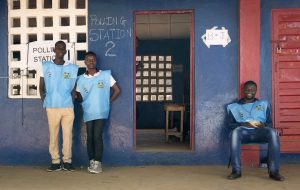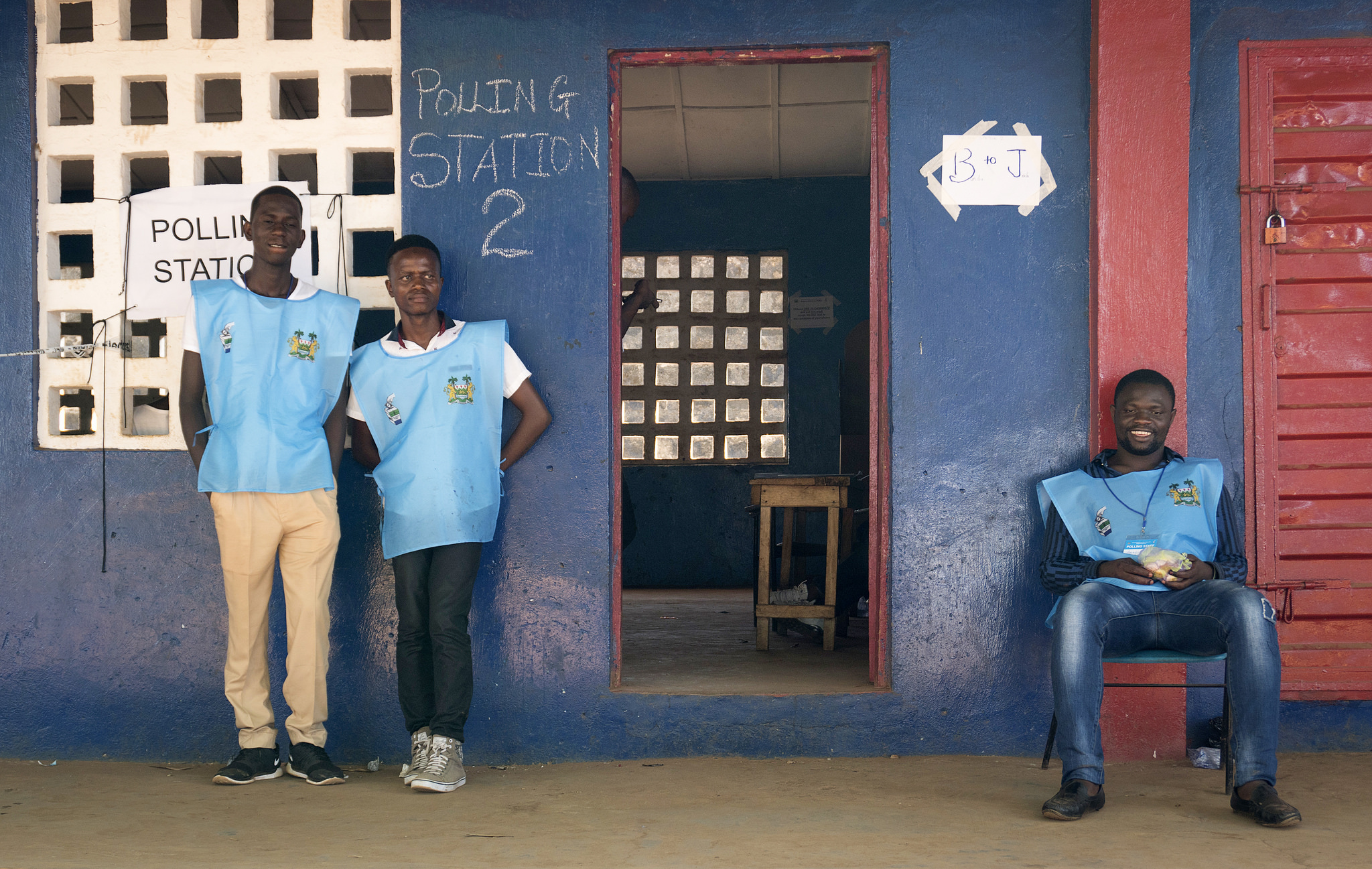by Dr Walt Kilroy, Associate Director of IICRR, tweets @waltkilroy
This post was originally published in the blog Presidential Power
A presidential election in Sierra Leone involving an upset for the ruling party, court challenges, and even a delay in holding the vote has nevertheless delivered something generally taken as a sign of a healthy democracy: a peaceful change of leadership in an internationally recognised poll. The outgoing president Ernest Bai Koroma had in fact reached his term limit, after serving two five-year terms. But his hand-picked successor from the ruling All People’s Congress (APC), former finance minister Samura Kamara, was the surprise loser. The country’s new leader, President Julius Maada Bio, comes from the main opposition party, the Sierra Leone People’s Party.
This is in fact the second time since the end of the civil war in the West African country in 2002 that there has been a peaceful transfer of power between the two main parties on the basis of an election. The first round of voting on March 7th showed it was a very close race, with the main candidates receiving 43.4% for Bio compared with Kamara’s 42.7%. A candidate had to receive 55% of the vote to win at the first round. Two new political parties ate into the support base of each of the main parties.
Court intervention

But before the second round could take place, it was held up by a court challenge which has been linked to the ruling APC, alleging electoral irregularities. It is unusual to see such a challenge from a ruling party, which is normally the side accused of interference. The High Court ruled that the second round could go ahead as planned on 27th March, but its decision came just before the vote. So the National Election Commission itself requested the courts to grant a short delay, saying logistical problems meant they needed more time. It went ahead on March 31st, four days after the planned date.
Interestingly, this is the third time in less than a year that elections in Africa have been held up or indeed overturned by a court ruling. The second round of the presidential election in neighbouring Liberia was also delayed by a challenge alleging fraud, and last August the Supreme Court in Kenya faced uproar when it annulled the presidential election and ordered that it be held again. The opposition refused to take part in the re-run, and the original winner, Uhuru Kenyatta, was elected once again.
Turnout in Sierra Leone was high: 81% (2.5 m voters), and Bio received 51.8% of the vote. Kamara received 48.2% and did meet Bio to congratulate him but refused to concede. He later launched a further legal challenge to the final result. In accordance with the electoral law, Bio took the oath of office within hours of the final tally being announced, and has proceeded to appoint his cabinet. International monitors were satisfied overall with the poll, although some of the language during the campaign did cause a worry.
There are some interesting parallels. The same pattern of change occurred in neighbouring Liberia a few months before: Ellen Sirleaf Johnson was completing her second and final term in office, and again it was the opposition candidate who won on the second round, after a brief court challenge to the first round from the government side. President George Weah’s past is also unusual, in that he was still better known as a football star rather than a politician. He took office in January.
Previous military rule
President Julius Maada Bio (53) has an interesting past, as a former military junta leader. He briefly led a military coup in 1996, which replaced a previous junta which had seized power some years earlier during the 1991-2002 civil war. He handed over power to a civilian government after a few months. (This track record parallels that of Nigeria’s President Muhammadu Buhari, who took power in a military coup in the 1980s, and many years later defeated an incumbent president to head a civilian government in the 2015 elections). After living in the US for years, Bio returned to Sierra Leone following the war. He has also been studying for a PhD in peace studies at the University of Bradford. He campaigned against corruption and mismanagement, striking a chord with many voters in Sierra Leone.
There were some reports of violence in the run up to both rounds of voting during rallies or confrontations between rival supporters. What is also worrying is that while ethnicity is not openly discussed, support for each of the main parties falls along ethnic lines.
There are plenty of problems to be addressed in the country of six million people, such as desperate poverty and deeply embedded corruption. Transparency International’s 2017 Corruption Perception Index places it 130 out of 180 countries. The country is still recovering from its war and the Ebola epidemic in 2014-15 which killed more than 4,000 people. The health system was left weakened, with one physician for every 50,000 people. During the outbreak schools were closed, economic life curtailed, and the economy shrank by nearly 20% in one year.
The figures from the Human Development Report (2016) are stark. It is ranked at 179 out of 188 countries on the Human Development Index. Life expectancy at birth is 51. Infant mortality has improved considerably but 12% of children still do not make it past their fifth birthday. The literacy rate is 48%, and while it is much better among those aged 15-24, there is still a wide gender gap (59% for young women, and 76% for young men).
One thing which may give Bio a break is that he was not elected on an enormous wave of hope, so at least unrealistic expectations (and inevitable disappointment) are not a major factor. However, Sierra Leone has suffered more than its fair share of poor governance (an important factor in creating the conditions for its civil war in 1991). For a country rich in natural resources, and population with a median age of less than 19, real leadership would be welcomed by many ordinary citizens.




